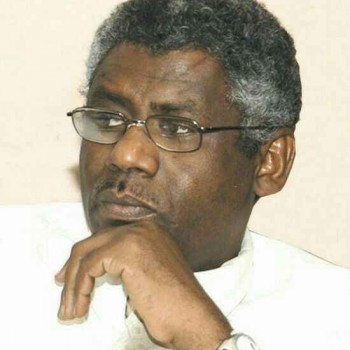The Position of Regional and International Organizations on the War in Sudan (2/2)

As I See It
Adel El-Baz
1
Yesterday, we examined the positions of regional organizations and unions on the war in Sudan. We saw how all of them failed to label the Rapid Support Forces as rebels, instead using terms like “armed conflict,” “leaders of the conflict,” and “the two sides of the conflict.” Even more, the IGAD organization sought to legitimize the presence of the Rapid Support militia by granting regional recognition, going as far as hosting the Janjaweed leader, Hemedti.
2
Today, we will look at the position of international organizations on the war in Sudan, starting with the stance of the UN Security Council, through its sessions and various resolutions. Since the war began on April 15, 2023, until August 2024, the so-called Security Council has held 31 sessions. It is important to note, dear reader, that 21 of those sessions were dedicated to the war in Sudan, while 6 sessions were dedicated to discussing the UNITAMS mission, and 4 sessions to the UNISFA mission. Unbelievably, 21 sessions as if World War III were about to break out in Sudan. This number rivals the sessions held during the Bosnia war and competes with the Iraq war and may even surpass the current Gaza war! Is Sudan really that significant, and is it truly such a grave threat to global peace and security?
3
Most of these sessions consisted of declarations of positions and pressure attempts, primarily driven by the UK, which acted as the advocate for the Janjaweed. The UK’s biased stance towards the militias became clear in four main instances:
First: Their swift referral of the Sudan crisis to the Security Council. Just three days after the fighting began, on April 17, 2023, Sudan’s crisis was brought to the Council’s attention, leading to an endless series of sessions.
Second: Their refusal to condemn the Janjaweed in any form throughout all 31 sessions of the Security Council.
Third: Their position regarding the report of the expert committee formed by the Council. The report contained facts that condemned the militias and exposed Emirati funding for the war, but the UK (acting like a bearer of kindling) sidelined the report into the deepest drawer of the Security Council, with only our ambassador, Al-Harith Idris, still mentioning it.
Fourth: The UK’s role in obstructing Sudan’s complaint to the Council about the UAE’s involvement in the war, a complaint that remains unaddressed due to flimsy reasons.
From the above, it’s evident that, despite the Security Council’s swift intervention in Sudan’s crisis, it remained loyal to militias aligned with the old and new colonial powers.
4
As for the United Nations, its primary focus has been on the humanitarian and human rights aspects, with repeated calls for a ceasefire. The most puzzling thing is how the UN equates the legitimate government and the rebelling militia. How does that make sense?
In their humanitarian and relief efforts, Martin Griffiths, the UN’s humanitarian coordinator, repeatedly called for a ceasefire and for the opening of relief corridors. However, he never dared to name who was blocking the aid, looting it, and obstructing its delivery!
5
On the human rights front, the Human Rights Council in Geneva took up Sudan’s case less than five months after the war began. On October 5, 2023, the United States, Germany, the UK, and Norway submitted a request to the UN Human Rights Council in Geneva to send an expert mission to Sudan to monitor human rights violations and investigate potential crimes against women, refugees, and children. Nineteen countries voted in favor of the resolution, while 16 opposed it, and 3 abstained. The resolution called on all parties in the conflict to fully cooperate with the fact-finding mission and urged the international community to provide full support for the mission during its one-year mandate.
Since its establishment under the leadership of Mohamed Shendi Osman, the mission has issued statements and conducted investigations but has remained suspiciously silent, failing to announce its findings nearly a year into its mandate. The reason for this delay is clear: had the mission presented its report with honesty, the world would have seen the truth about the militia that is being protected, whose crimes are condemned by all earthly and divine laws—except by the Security Council and the Human Rights Council.
6
From the above, it’s clear that the world, along with its regional and international organizations, has betrayed its charters and values, which it should be upholding. These organizations now operate solely in line with their interests and alliances, far removed from promoting justice or working to establish peace and security in the world. Their conscience has disappeared—if they ever had one. The clearest example of this is what’s happening right now in Gaza. An entire people is being exterminated live on air, and the world watches in silence! After what is happening in Gaza, can anyone argue that these unjust ruins can bring about justice, peace, or protect any human rights?.



